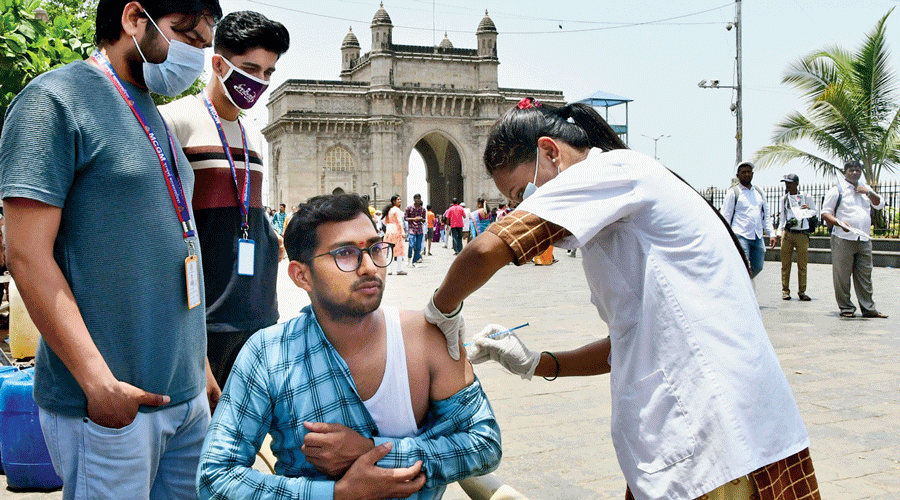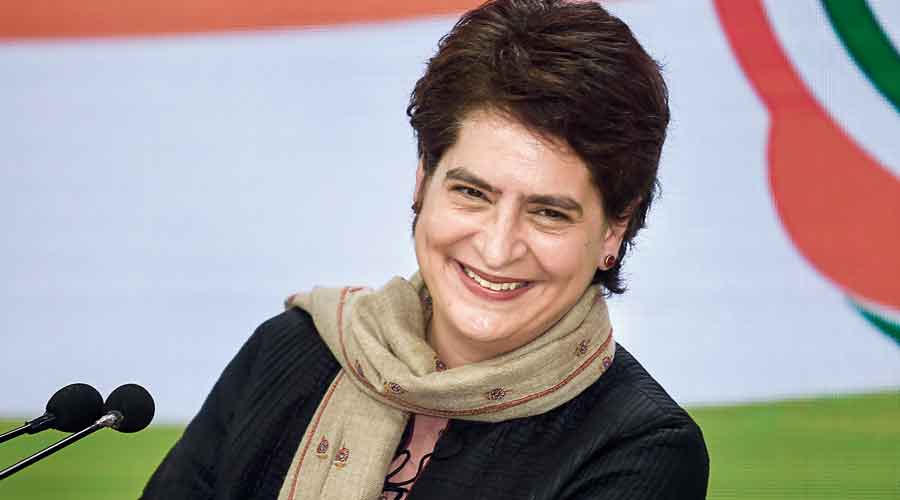The Union health ministry on Friday flagged an upsurge in Covid-19 infections in five states — Karnataka, Kerala, Maharashtra, Tamil Nadu and Telangana — and directed local authorities to enhance surveillance, encourage Covid-19 precautions and
send samples for genome sequencing.
Union health secretary Rajesh Bhushan, in letters sent to the five states, has urged local authorities to look out for clusters of Covid-19 cases, monitor severe acute respiratory illness in healthcare facilities and focus on Covid-appropriate behaviour.
Scientists say the upsurge suggests that a coronavirus variant is causing breakthrough infections. But they add that it is still unclear whether a new variant is driving the increase in counts or what impact the upsurge might have on hospital care.
Eleven districts in Kerala and six in Maharasthra have recorded increases in infections over the past week.
The 11 districts in Kerala are Ernakulam, Thiruvananthapuram, Kottayam, Kozhikode, Pathanamthitta, Idukki, Alappuzha, Kollam, Kannur, Malappuram and Wayanad, the health ministry said.
The six Maharashtra districts are Mumbai, Mumbai Suburban, Palghar, Pune, Raigad and Thane.
In Kerala, new cases increased from 4,139 during the week ending May 27 to 6,556 during the week ending June 3. In Maharashtra, the counts increased from 2,471 to 4,883. The two states accounted for 54 per cent of the weekly cases nationwide.
The Chennai and Chengalpattu districts in Tamil Nadu and Bangalore district in Karnataka have also shown increased weekly counts, the health ministry said.
The Indian National SARS-CoV-2 Genome Sequencing Consortium (Insacog), a network of labs engaged in sequencing coronavirus samples, expects to analyse sequencing data from the most recent samples over the next three to four days, the scientists said.
“We expect some sequencing data and analysis related to the current upsurge to emerge by the middle of next week,” a senior Insacog scientist from one of the labs told The Telegraph. “For now, we don’t have any new signal to say what’s going on.”
Since India’s third wave, driven by the omicron variant, in January, a sibling of omicron named BA.2 has spread nationwide. Insacog scientists say the latest data indicate that BA.2 remains the dominant variant although other siblings such as BA.4 and BA.5 have popped up in isolated cases.
None of these sub-lineages of omicron have so far been associated with an increase in disease severity, the Insacog secretariat had said in its official bulletin in April amid what appeared a mini-surge in Delhi and Haryana.
Health experts believe the immune responses generated by India’s three Covid-19 waves and the country’s high vaccination coverage will protect people from severe disease, although new infections might continue to emerge through viruses that cause breakthrough infections.
“My expectation is that we’ll continue to see mini-waves not just in India but across the world,” said the Insacog scientist, requesting not to be named.
“But we’re unlikely to see any large-scale severe disease in future waves –- unless the virus changes dramatically as it did into alpha, then delta, then omicron. As long the virus continues to infect people and multiply, the risk of such a change persists.”












